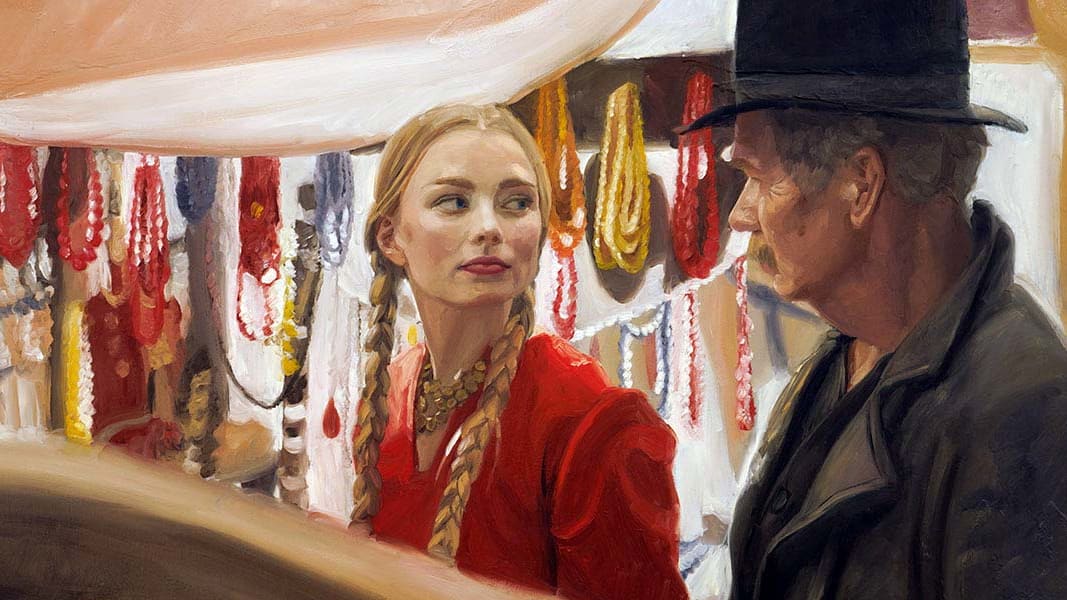Courtesy of TIFF
TORONTO, Canada—We’re in an era of revisionist historical dramas that care more about imagining the past as it should have been than as it was, and thus The Peasants resounds as a bracing corrective. An amazingly evocative and illuminating period piece that’s fixated on the details and dynamics that govern life in a small 19th-century Polish village, wife-and-husband writers/directors DK and Hugh Welchman’s film (premiering at this year’s Toronto International Film Festival) employs the same gorgeous painterly animation as their prior Loving Vincent. The result is at once florid and austere, inventive and realistic, and an altogether enlightening recreation of a bygone time and place.
The Peasants is an adaptation of Władysław Reymont’s Nobel Prize-winning novel (written in four volumes from 1904-1909) and concerns Jagna (Kamila Urzedowska), a young blonde-haired maiden whose fetching looks make her the prize of Lipce, a remote rural farming community. It’s an enclave where everyday talk revolves around wool, potato harvests, and church, and where everything is run through Boryna (Mirosław Baka), the area’s wealthiest landowner and, consequently, most powerful man. Boryna is recently widowed and has three children, the oldest of whom, stout and severe Antek (Robert Gulaczyk), is married to Hanka (Sonia Mietielica). Antek and his siblings all covet their father’s wealth and are intent on preserving their right to their inheritance. Of more pressing interest to Antek, though, is Jagna, for whom he desperately pines.
DK and Hugh Welchman set their scene via gracefully morphing Van Gogh-inspired sights, with close-ups of tall grass fields shifting attention to dandelion fluff blooming and blowing through the air, cascading over green landscapes, and drifting past flocks of birds on the way to Lipce. Outside a church, their camera trails behind an adolescent boy as he races between various groups of men and women, their conversations providing insights into their routines and immediate affairs. Much of that chatter has to do with Jagna, who’s “beautiful and talented” and therefore primed for marriage. “I don’t care about that,” she tells the mayor’s wife, but care she must, in order to keep a roof over her head and food in her stomach. Afterwards, her mother makes sure her daughter understands that independence—be it caring for an injured stork or making lovely cutout designs intended to decorate the walls of homes—is not a future on which she can count.

